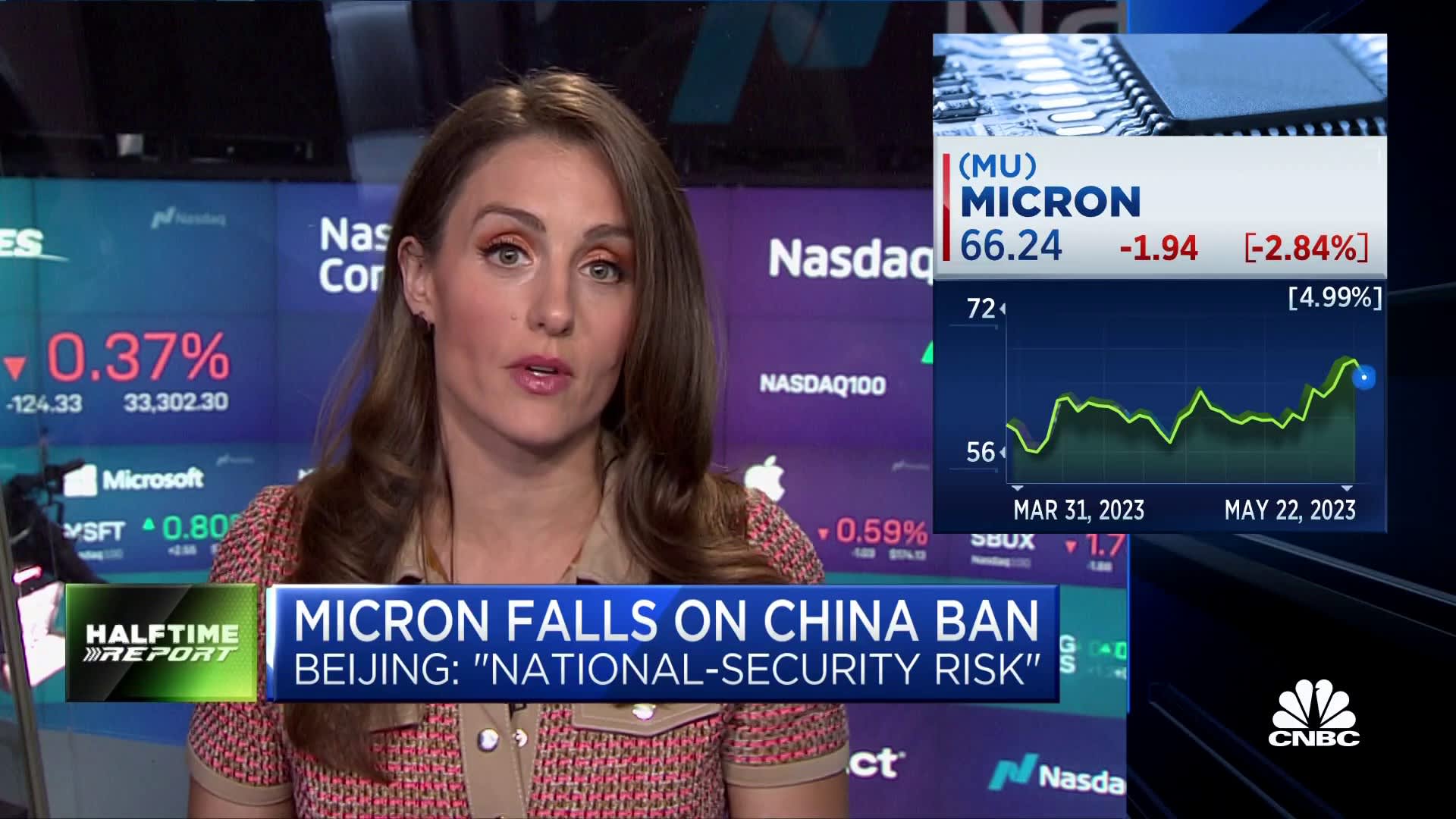Samsung Electronics Co. 8GB Double-Data-Rate (DDR) 4 memory modules.
SeongJoon Cho | Bloomberg | Getty Images
The U.S.-China chip war could impact South Korea’s chip giants as China accounts for a large chunk of their production capacity — but there shouldn’t be long-term disruptions, according to Fitch Ratings.
Samsung Electronics and SK Hynix face risks as the U.S. seeks to block China’s access to advanced semiconductor chip equipment, according to the June 7 report.
China accounts for 40% of Samsung’s total flash memory chips (NAND) production capability, said the analysts led by Matt Jamieson. It also accounts for 40%-50% of SK Hynix’s dynamic random access memory (DRAM) chips and 20% of its NAND capacity.
“We do not think there would be a major long-term supply disruption, as it is likely that Korea will become the main location for the two companies’ expansionary investment and technology upgrades,” the credit ratings agency said in the June 7 report.
The U.S. in October introduced sweeping rules to cut off China’s access to obtain or manufacture high-tech semiconductor chips. They came as concerns grew over China’s ability to use such high-tech chips to advance its military capabilities. The Netherlands and Japan are reportedly poised to follow suit.
Samsung Electronics and SK Hynix are the two largest manufacturers of memory chips globally, followed by U.S.-based Micron in third place. Memory chips are storage devices used in computers, smartphones and tablets.
The companies’ fabrication plants in China make advanced chips as well as older chips, which are exempted from the U.S. restrictions. The memory chips are produced for Chinese consumption as well as exports.
However, the two chip giants obtained one-year waivers from the U.S. to continue importing advanced tools for their China plants until October, according to the Korea Times.
“Should the U.S. not extend the waiver, we expect the companies to continue producing memory chips at their Chinese plants using already installed technology,” said Fitch Ratings.
Benefit from Micron ban
In what is seen as a retaliatory move, China banned the sale of products from Micron for use in critical information infrastructure in May.
Fitch Ratings said Samsung and SK Hynix “may benefit from higher chip prices within China as a result. However, the impact is likely to be small and could be offset if Micron redirects the sale of its memory chips outside of China, as this would probably lower global chip prices.”
The White House reportedly urged South Korea not let its chipmakers fill Micron‘s void in China. Around 10% of Micron’s revenue come from China, according to Micron’s fiscal 2022 report.

The Fitch report said the two South Korean chipmakers will at least partially fill Micron’s gap. “It will be difficult to monitor what capacity lost by Micron is actually filled by the Korean companies, given the commodity-like nature of memory chips.”
“The logistics of this strategy could take time, but could offset any positive impact Samsung Electronics and SK Hynix may obtain from the ban on Micron within China in light of the world’s memory chip oversupply,” the analysts said.
However, risks could further increase if the U.S. or China implement more extreme rulings and bans, as it will affect the cost and availability of semiconductor supply-chain components, they added.





